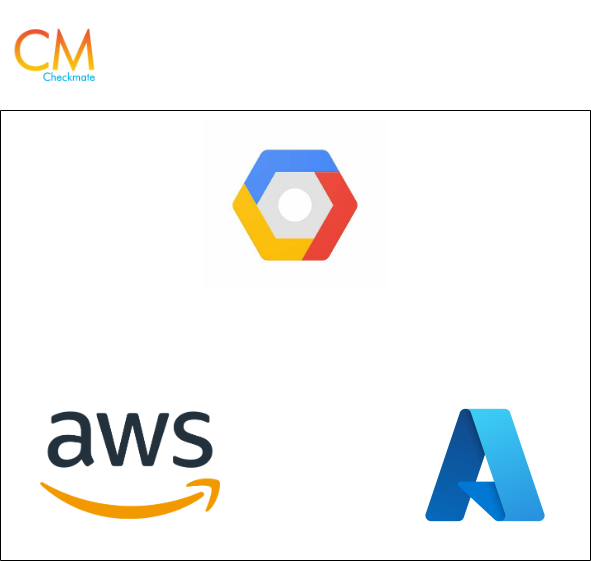Cloud Computing is the on-demand use of resources such as compute services, object storage, managed database, and managed Kubernetes, fully managed infrastructure for DataScience, AI/ML, Networking, and many more which are hosted in distant data centers and controlled or managed by different cloud providers. AWS, GCP, and Azure are the most used cloud computing platforms.
Cloud migration services, DevOps pipeline transformation are growing quickly because cloud providers offer on-demand computing resources and services in the cloud with pay-as-you-go pricing that helps enterprises save money. In this blog, we will compare the three Cloud Service Providers- AWS, GCP, and Azure.
General differences between AWS, GCP, and Azure:
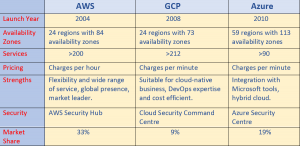
AWS vs Azure vs GCP – Comparison of important services
-
Compute
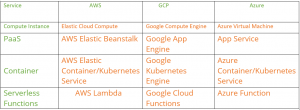
Instance pricing comparison (On demand):
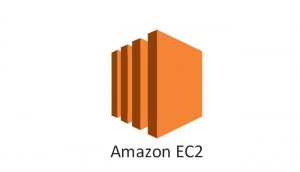
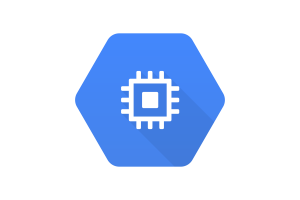
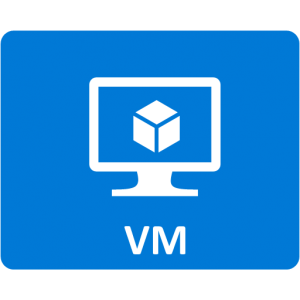
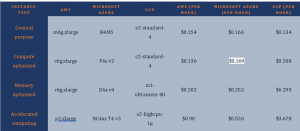
-
AWS
Amazon EC2 or Elastic Cloud Compute provides scalable computing capacity in the AWS cloud. With the use of Amazon EC2, you can create various instance types that offer various CPU, memory, disc, and networking configurations.
Amazon Lightsail: It provides everything needed to build an application or website.
Elastic Container Service: It provides a reliable and scalable way to run containers.
Elastic Kubernetes Service: It is a fully managed service that helps in creating and operating Kubernetes clusters.
AWS Lambda: It is a serverless computing service using which we can run code without thinking about servers.
Fargate: It is a serverless computing service for containers.
Elastic Beanstalk: It is an easy-to-use service for deploying and scaling web applications and services.
Compute Engine: It is built on the same infrastructure used by the Google search engine, YouTube, and other Google services.
Google App Engine: The capacity of Google App Engine to automatically scale is its most important benefit. This implies that when there is a spike in requests, the App Engine automatically allocates more resources for the application.
Kubernetes Engines: This service is in charge of providing a platform for automatic application container deployment, scaling, and other operations across host clusters.
- Azure
Virtual Machine: This service enables us to set up and control virtual machines inside of a virtual network.
App Service: It is a Platform as a Service(PaaS) for hosting applications, RESTful APIs, or automated business processes.
Azure Kubernetes Services: It is a service for managing containerized applications.
AWS vs GCP vs Azure in Microservice Architecture:
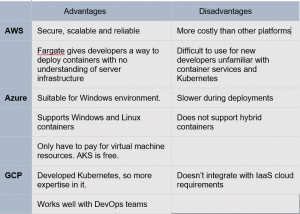
2. Database
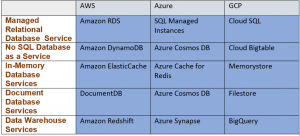
AWS database service is preferred if you are already using other AWS services and looking for a high-performance and reliable database with the widest range of options.
Azure database service is preferred if you want to migrate an existing database to the cloud or operate in a Microsoft-based hybrid infrastructure.
You can use the Google cloud database if you want to use a database for microservice architecture and require high performance for workloads.
3 Multi-cloud support
AWS offers a service called AWS outposts. Amazon will provide pre-configured racks to your physical location as part of this service. For its users, the outposts facilitate hybrid cloud enablement.
Anthos is Google’s response to hybrid clouds. Google Kubernetes Engine, the Anthos Config Management console, and GKE On-Prem are all combined by Google Anthos. Kubernetes clusters and other workloads can be run on AWS and Azure with Anthos.
Azure allows users to run the cloud services of Microsoft on GCP and AWS. Customers of Azure have access to the hardware and software needed for Azure cloud service deployment from the local data centre.
4. Machine Learning
Machine learning models are developed and trained using Amazon SageMaker in AWS. Using Amazon Augmented AI, machine learning models are subjected to human assessment. Using machine learning, Amazon Forecast improves forecast accuracy. The language translation service Amazon Translate makes use of machine learning and natural language processing. In machine learning systems, Amazon Personalize generates customized suggestions. AWS Deep Learning AMI is employed in Deep Learning solutions. Amazon Polly is a tool for turning text into realistic speech.
In the case of Azure, Microsoft Azure Cognitive Service offers applications smart cognitive services. Microsoft Azure Azure Databricks offers analytics powered by Apache Spark. Microsoft Azure Bot Service offers scalable, intelligent, and clever bot services. For mobile and web apps, Microsoft Azure Cognitive Search is a machine learning-based service. We can create and deploy machine learning models on the cloud with Microsoft Azure Machine Learning.
For GCP Google Cloud AutoML is used for developing and training AutoML machine learning models and Google Cloud AI is used to develop, train, and maintain ML models. 120 languages are supported by Google Cloud Speech-to-Text, a speech recognition system for converting spoken words into text.
We can create machine learning models for cloud vision using Google Cloud Vision AI to recognize text, among other things. Google Cloud Text-to-Speech is a technology for creating a speech that converts text to speech. Google Cloud Natural Language is a tool for text analysis and classification using natural language processing.
5. Storage
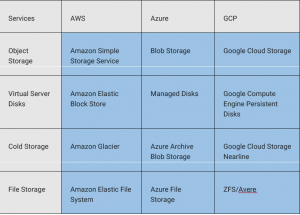
Which one to choose?
Which cloud platform is best for you depends on the requirements and business needs. Each cloud platform has some specialization in some of the services and are unique in their own way which helps us to determine the right choice for us.
AWS provides the most number of services including databases, security, and analytics which makes it the right solution for medium and big companies. It also integrates well with third-party services.
Azure also has extensive cloud services and it is suitable for hybrid cloud infrastructure. Azure integrates smoothly with Microsoft products.
GCP does not have a wide variety of services but it integrates well with various open-source technologies. GCP is also ahead in containers and Kubernetes technology. It is a preferred choice for microservice architecture.
Please contact our technical consultants if you have anything related to cloud infrastructure to be discussed.

